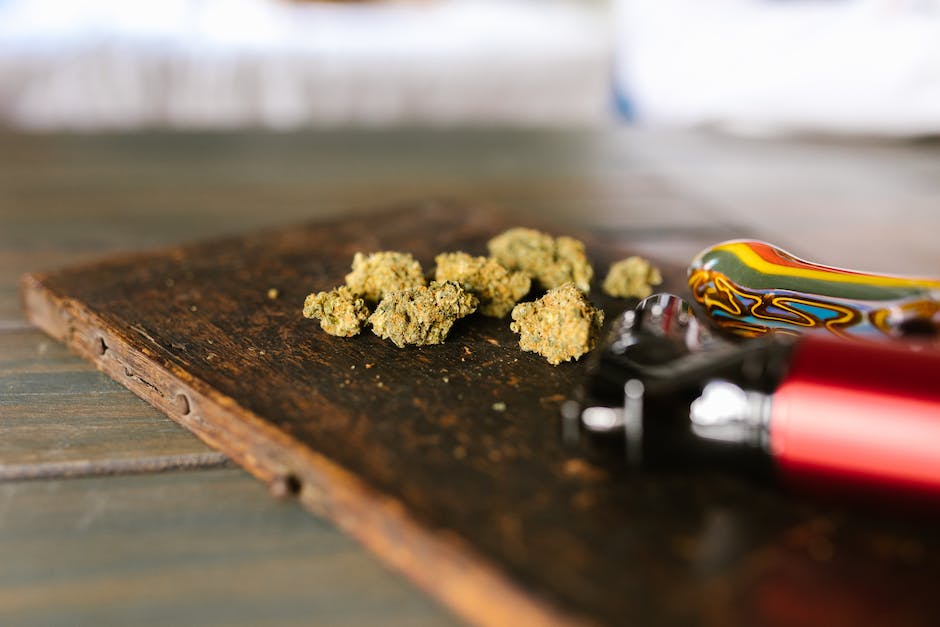The legalization of cannabis has been a topic of debate for many years, with proponents arguing that it can reduce the harm caused by substance abuse, while opponents argue that it can lead to increased drug use and addiction. With more and more states legalizing cannabis for medical and recreational use, it’s important to explore the potential benefits and drawbacks of such policies. In this blog post, we’ll delve into the issue of cannabis legalization, its impact on substance abuse, and how it can be a pathway to reducing harm caused by other drugs.
The current status of cannabis legalization: Overview of countries and US states that have legalized cannabis in some form and the effects of legalization.
Marijuana or cannabis has been a highly debated topic worldwide for decades. But, over the years, the perception of people toward the plant has changed drastically due to its potential medicinal benefits. As of 2021, many countries and U.S states have legalized it in some form. For example, Uruguay and Canada have legalized marijuana entirely, while the United States has decriminalized it. Some U.S states, including Colorado, California, and Washington, have legalized its recreational use, while many other countries have legalized it for medicinal purposes only.
The effects of legalization vary from country to country, depending on the legislation and the approach taken. However, one common outcome has been a shift from a criminal justice approach toward drug use to a public health approach. Further, where marijuana is legalized, it fosters research in the field, leading to greater knowledge and understanding of the plant’s medicinal properties, which can help develop new medications and treatments for various ailments.
The impact of cannabis on substance abuse: Discussion of studies that have shown that cannabis may serve as a substitute for more harmful substances.

Studies have suggested that cannabis legalization may actually help in reducing the overall harm caused by substance abuse. This is because cannabis has been shown to serve as a substitute for more harmful substances like alcohol and opioids. Research published in the Clinical Psychology Review has found a direct relationship between the availability of cannabis and a decrease in opioid-related issues, including hospitalizations and overdose deaths. The authors of the study found that people who consume cannabis as an alternative to opioids may be able to reduce their dependence on and use of opioids in the long run. Additionally, a study published in the Journal of Psychoactive Drugs found that patients who consumed cannabis for medical purposes had significantly lower use of alcohol, prescription medication, and other illicit drugs, suggesting that cannabis could be an effective substitute for these substances as well. While more research is needed in this area, the findings show that cannabis could have a positive impact on substance abuse overall, suggesting that legalization could be a pathway to reducing the harm caused by substance abuse.
The addictive potential of cannabis: Explanation of the misconceptions surrounding the addictiveness of cannabis and the reality of addiction.

While there is still debate around the topic, many experts agree that cannabis has an addictive potential. However, it’s important to understand the misconceptions surrounding this issue. One of the most common misconceptions about cannabis addiction is that it is purely physical, like heroin or alcohol addiction. In reality, cannabis addiction is more psychological in nature, and people who become addicted to cannabis continue to use the drug in order to experience the pleasurable effects it produces.
Another common misconception is that cannabis addiction only affects individuals who use the drug heavily or frequently. However, researchers have found that even intermittent or occasional cannabis use can lead to addiction, especially when it is used to cope with stress, boredom or other negative feelings.
It’s worth noting that cannabis addiction is not as severe as addiction to other substances. Most people who develop cannabis addiction are able to quit using the drug without experiencing severe withdrawal symptoms. However, for those who do experience withdrawal symptoms, they can include irritability, anxiety, difficulty sleeping, and decreased appetite.
Overall, while cannabis addiction is not as severe as addiction to other substances, it is still a real issue that should be taken seriously. By understanding the misconceptions surrounding cannabis addiction, we can better educate ourselves and take steps towards reducing the harm of substance abuse.
The benefits of cannabis for addiction treatment: Discussion of studies that have found that cannabis may help individuals overcome addiction to other substances.

Studies have indicated that cannabis could potentially be a beneficial tool for treating addiction to other substances. For instance, a review of multiple studies conducted on opioid dependence found that cannabis use was related to successfully abstaining from opioid use. Additionally, a study published in the Journal of Pain and Symptom Management found that cannabis was effective in reducing symptoms of opioid withdrawal, such as anxiety and sleep disturbances.
Another study found that cannabis use could reduce the need for benzodiazepines, a commonly prescribed drug that can be highly addictive. Researchers found that patients who used medical cannabis to treat their anxiety were able to significantly reduce their dependence on benzodiazepines.
Of course, it’s important to note that the research on the benefits of cannabis for addiction treatment is still in its early stages, and more studies are needed to fully understand the potential benefits and risks. However, these initial findings highlight the potential impact that cannabis could have in reducing the harmful effects of substance abuse.
The potential for harm reduction with legalization: Explanation of how legalization can help reduce harm from substance abuse by offering safer options and reducing the consequences of criminalization.
Cannabis Legalization: A Pathway to Reducing the Harm of Substance Abuse
The potential for harm reduction with legalization:
Legalization presents a significant opportunity to reduce the harm caused by substance abuse. By removing cannabis from the black market, regulation and taxation can ensure that consumers have access to safer products. Legalization can also address the harms and consequences caused by criminalizing individuals for cannabis possession and consumption.
Legalization can help decrease the prevalence of dangerous drug dealers who may sell unsafe products, including those who mix cannabis with harmful substances. Instead, cannabis businesses can confirm the purity and strength of their product, assisting consumers in making informed decisions about what they are consuming.
Legalization can also provide resources and funding to support the research and education of harm reduction measures like drug education and safe consumption practices.
Moreover, through legalization, people can finally get access to medical marijuana in states where it is legal. Medical marijuana has been shown to be a less harmful alternative for treating chronic pain, and easing the symptoms of conditions such as epilepsy, multiple sclerosis, Crohn’s disease, and PTSD.
In conclusion, by supporting the legalization of cannabis, we can take a significant step towards reducing the harms caused by substance abuse. We can create a safer environment for cannabis consumers, decrease black market drug activity along with its associated violence, and provide resources towards drug education, harm reduction, and medical research.
Potential economic benefits of legalization: Discussion of the financial benefits of legalization, including tax revenue and job creation.

The potential economic benefits of cannabis legalization cannot be ignored. One of the most significant advantages is the increase in tax revenue generated from the sale of legal cannabis products. According to a report by New Frontier Data, the legal cannabis industry is projected to create over $22 billion in tax revenue by 2025. This influx of revenue can be put towards vital areas such as education, healthcare, and infrastructure, benefiting the whole community.
Moreover, legalization will also create a multitude of job opportunities. This includes not just jobs in the direct industry but also in ancillary areas such as transportation, security, and hospitality. Reports suggest that the widespread legalization of cannabis could create anywhere around half a million to a million new jobs across the United States. This promise of job creation can benefit both urban and rural areas, leading to greater socio-economic development.
Finally, the legalization of cannabis can also result in reduced costs for law enforcement and the criminal justice system. With decreased expenses associated with monitoring, arresting, and prosecuting cannabis-related crimes, governments can save millions of dollars in resources, which can be utilized to promote public safety and fund other crucial programs.
In conclusion, the financial benefits of cannabis legalization are numerous, and the potential tax revenue and job creation that it can create are significant. Policymakers must consider these potential benefits while considering legalization and its implications.
The role of education in reducing harm: Explanation of the importance of education in reducing harm from substance abuse and how legalization can facilitate education efforts.

Education is one of the most effective tools in combatting substance abuse. By providing individuals with accurate and unbiased information about the risks associated with various substances, they are empowered to make informed decisions. Legalization of cannabis offers an opportunity to facilitate education efforts. Instead of relying on scare tactics and prohibitionist policies, education campaigns can be created that focus on harm reduction. These campaigns can promote safe use practices, such as avoiding driving while under the influence, purchasing from licensed dispensaries, and ensuring that cannabis is not used in combination with other drugs that can increase the risk of harm. Education can also promote responsible use, helping individuals recognize signs of addiction and seek help when needed. Legalization can facilitate education because it removes the stigma associated with cannabis use and allows for open and honest discussions about the risks and benefits of use. By normalizing cannabis use, it becomes less taboo to discuss and easier to provide accurate information. In this way, legalization can play an important role in reducing harm from substance abuse.
The importance of regulation: Discussion of the need for proper regulation to ensure product safety, quality, and appropriate marketing.

The legalization of cannabis comes with its own set of concerns. Proper regulation is vital to ensure that products sold are safe for consumption and of high quality. Like any industry, there will be bad actors who will try to take advantage of the lack of regulation to market their products inappropriately. Regulations can ensure that products are marketed in a responsible way and that their labeling is clear and accurate. Proper regulation can also make sure that the right dosages are provided, thereby avoiding overconsumption or adverse effects. By creating and enforcing quality standards, consumers can have faith in the products they purchase. The process of regulation creates jobs and taxes that can be put to use to aid the community. Therefore, it is critical to establish a system of regulation that covers all aspects of cannabis trafficking from growing, processing to selling.
